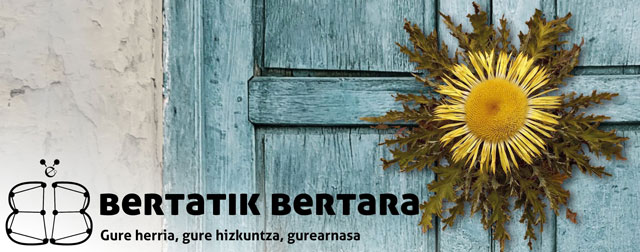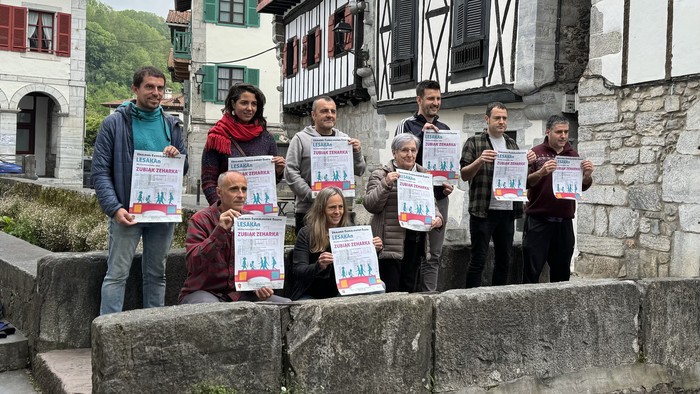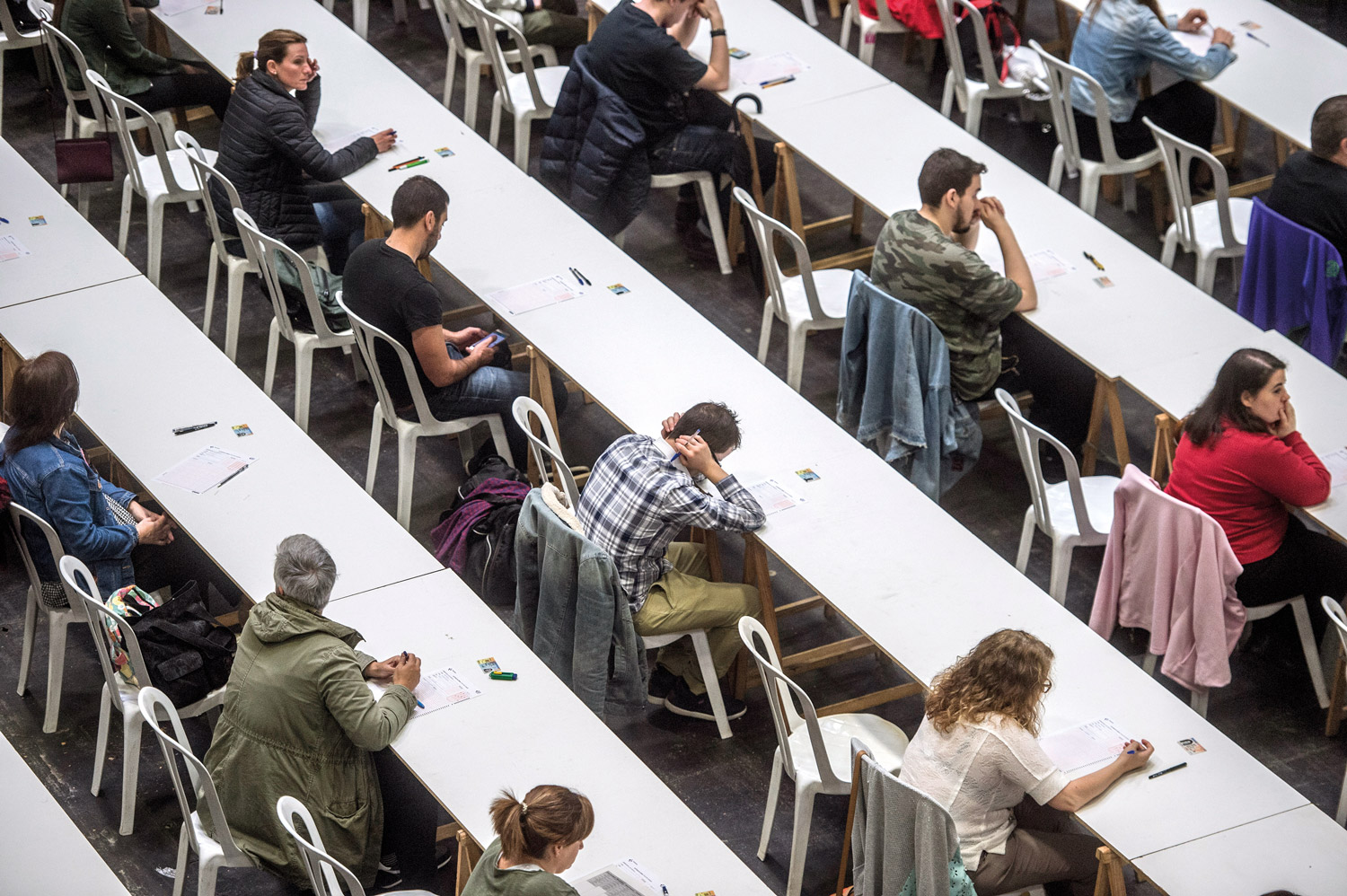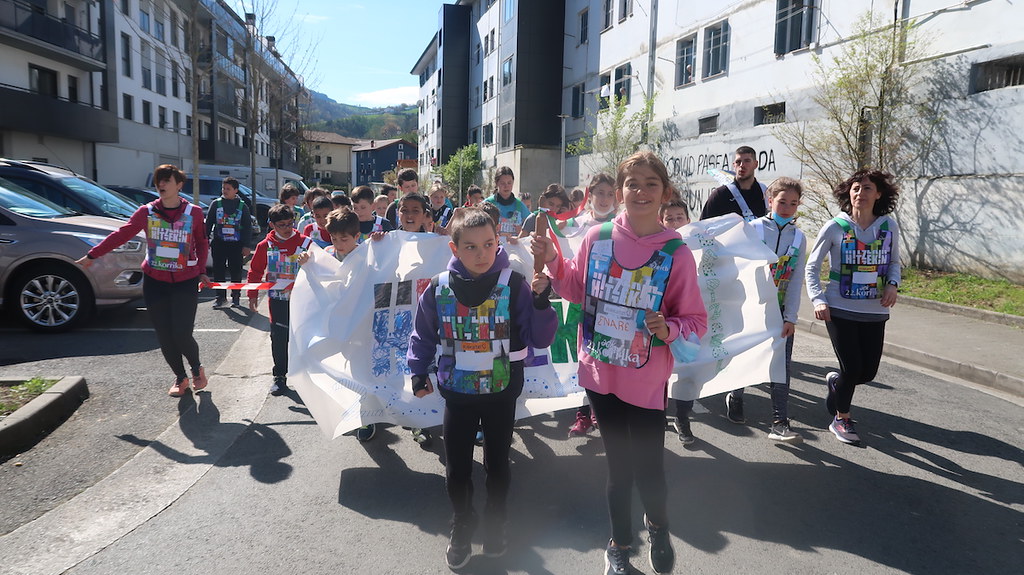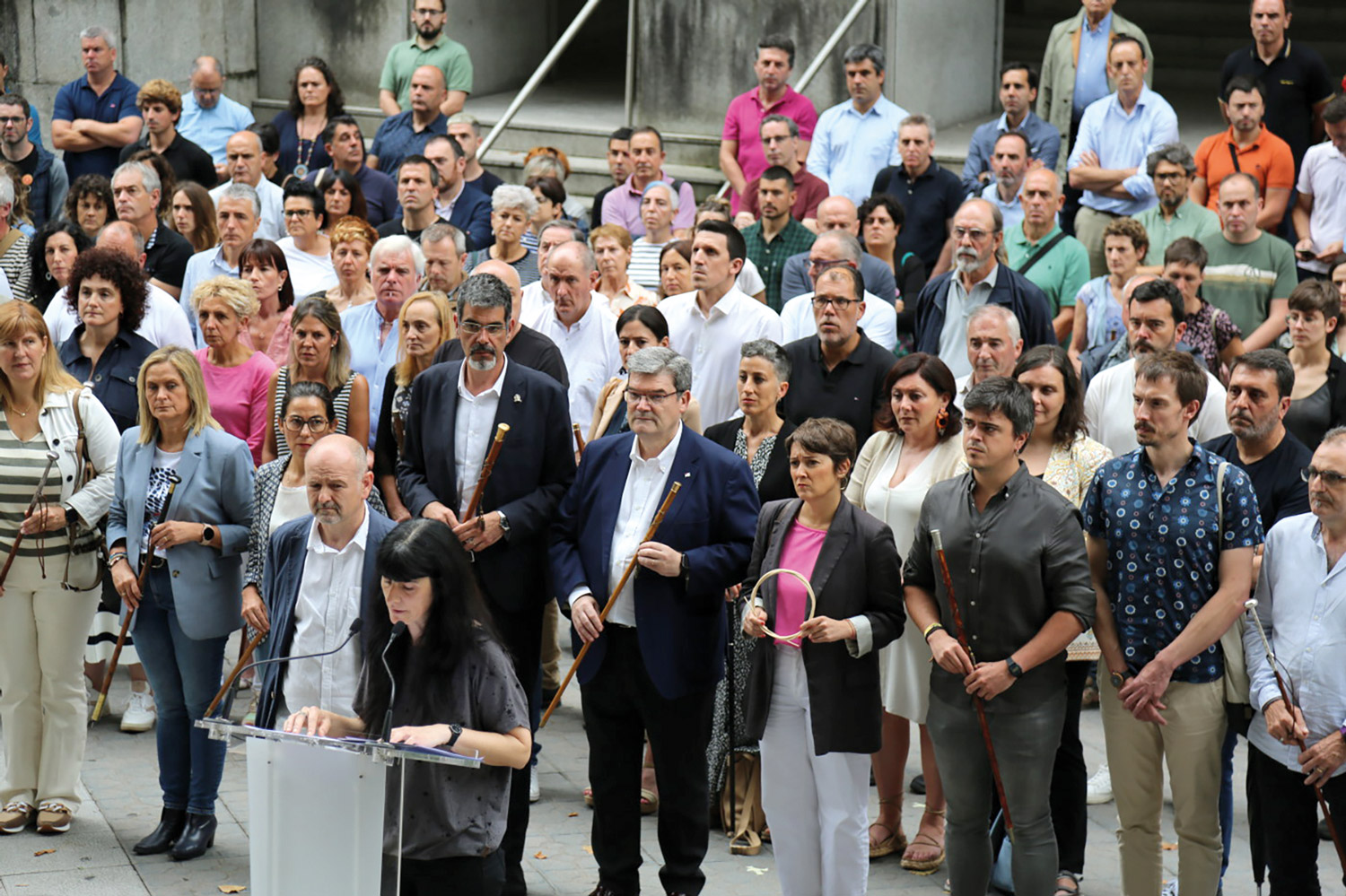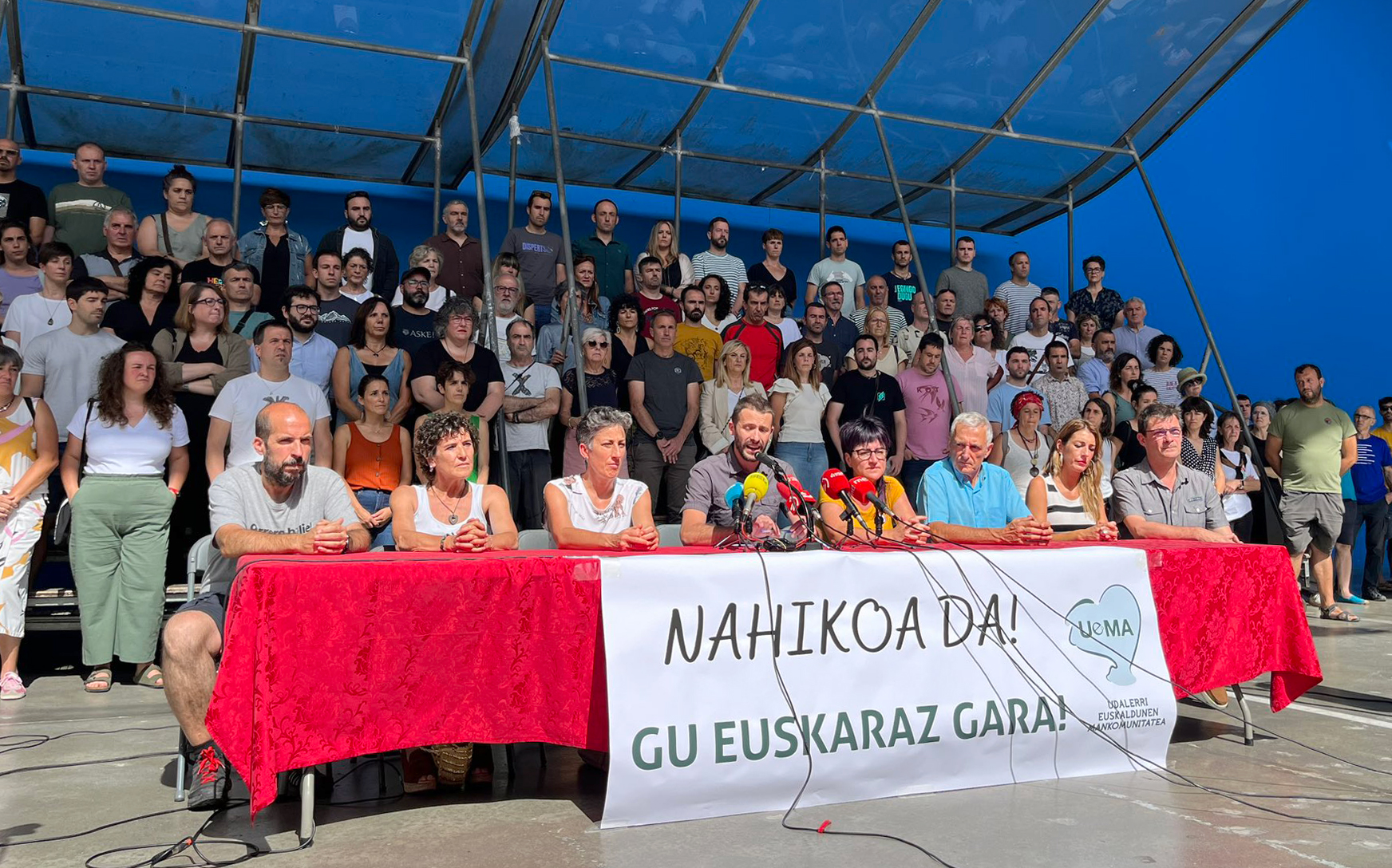One in five workers does not know Euskera
- This is indicated by 2018 data. The count is performed every two years, and despite the improvement of the data, the municipalities of UEMA consider that it is far from guaranteeing the service in Euskera. The latest news has come from Urola Costa, where they have brought a family doctor with Castilian to serve several Basque municipalities. Osakidetza says that there is a lack of Basque professionals and, therefore, they have seen the need to begin to influence education.

I haven’t understood the doctor at all.” This is not likely to be an isolated case, the case of the daughter of Getaria Mayor Haritz Alberdi. Although there are no problems in going to the pediatrician and communicating in the village, it is astonished that another episode occurs in the health center. In the outpatient clinics of many small towns, as is understandable, Osakidetza and Osasunbidea put a single doctor or worker for certain areas. What is not intelligible, however, to the mayor of Getaria, is not to take into account the characteristics of each people. More than 70% of the population of the municipalities belonging to the Commonwealth of Basque Municipalities knows Euskera – more in the case of Getaria – and there are many citizens who have had problems attending the outpatient clinic, such as the lack of communication or the feeling of feeling strange. The case of Getaria is similar to that of Deba, Aramaio, Usurbil, Elgeta, Leitza and Goizueta: there are villages that share a doctor with other peoples in the area, and this person may not meet the linguistic requirements – often in the case of pediatricians. Thus, like Alberdi's daughter, the child was unable to communicate with the doctor.
UEMA opened a communiqué at the end of the first week of July with the signing of the mayors of Aizarnazabal, Zestoa, Zumaia and Getaria. In these four municipalities of the region of Urola Kosta what has already been mentioned happens: they share a doctor in these municipalities, in this case a family doctor. In a note sent to Osakidetza, the trade unions denounced that the worker did not respect the linguistic rights of citizens and imposed not only on him the usual replacement contract in the summer holiday periods, but also a contract with the same possibility of continuing. In other words, the problem is not going to be on holiday, which can continue after the summer. The note read as follows: “Taking into account the linguistic reality of these municipalities, it is necessary to guarantee vasco-speaking professionals”.
“There are no Basque professionals”
Every time they publish the data, Osakidetza responds like this, says Eneritz Albizu of UEMA: “They say they try to prioritize Basque professionals, but they do not find enough to guarantee the provision of the service in Basque.” In response, UEMA's request to the public administration was to influence university and education, giving enough importance to language, that is, in the adoption of radical measures for the Euskaldunization of health. The request included the reservation of places for students who choose to pursue their Health studies in Basque, and as such, at the beginning of the last year, the University of the Basque Country/Euskal Herriko Unibertsitatea intervened in the regulation of access to the university: from the next year, it will reserve a number of places for Euskaldunes. But the number does not reach half of the seats and UEMA says there are very few.
The focus is on education, because Osakidetza is hiding behind that. Medical students report every year that Euskera's students are hindered in learning health in their language. Albizu believes it can become a kind of loop: “If Euskaldunes students move to Spanish to avoid obstacles and perform their studies without problems, it is normal that there are no Euskaldunes professionals. Therefore, if we continue to put obstacles in education, we will never really euskaldunize health”.
At least the data improves
Last year, for the first time, UEMA members analyzed more branches of the Health Service: nurses, reception staff and emergency physicians. To this must be added family doctors and pediatricians who were already included in the contact. In the case of the municipalities that are part of UEMA in the CAPV, about 14% of the total analyzed workers do not meet the linguistic requirements, while in the case of Navarra the percentage rises to 68%. This situation affects almost all of the 87 municipalities that make up the community, except in the general service in case of emergency.
Although in almost all municipalities data have improved or remained, as in 2016, the concern remains with pediatricians: 30% do not dominate the Basque country. The number of family doctors and nurses is as many, but Eneritz Albizu stresses that it is even more serious that children cannot attend in Basque. In addition to the aforementioned case of Urola Kosta, he tells us about the situation in Navarre. “Goizueta, Leitza and Areso have a unique pediatrician who does not know Euskera for the three and the case of Bera is even more serious: they have two doctors, a pediatrician and a host person, and the four are Castilanospeakers.”
Albizu has been convinced that there are areas where Osakidetza behaves very cautiously. In the case of the reception, for example, it seems that they prioritize the knowledge of the Basque: Only 8% do not know Euskera in the municipalities of UEMA. On the contrary, in the case of emergencies it is noted that no: “More than half of the emergency physicians do not know Euskera and in this type of sensitive situation it can facilitate communication to the patient.”
“We must not forget that the data has improved,” says Albizu. He says that progress has been made, particularly thanks to the Basque plan put in place by Osakidetza and other initiatives. “UEMA acknowledges that an attempt is being made and is positively valued, but it seems to us that it is still far from guaranteeing the provision of the service in Basque.”
Professionalism and Euskera, along the same road
It has often been said that it is a kind of boycott of professional monolinguals in addition to the complaint made by UEMA. It is often discussed what is most important, to know Euskera or to be a good doctor. For UEMA both go the same way: the doctor who does not know Euskera cannot provide a quality service to the patient, who does what he does, if the patient feels strange and feels compelled to speak a language that does not feel his own. If it is communicated in the patient's language, the consultation relationship can facilitate communication and become empathetic, according to Albizu: “Knowing Euskera depends on being a good doctor; it is not our whim, it is our right”.
"Zubiak zeharka” lemapean, egun osoko egitaraua prestatu dute UEMA eguna ospatzeko. Herriko eragile guztiek hartu dute parte programaren prestaketan eta ekimen herrikoi eta partehartzailea izatea lortu dute horrela.












